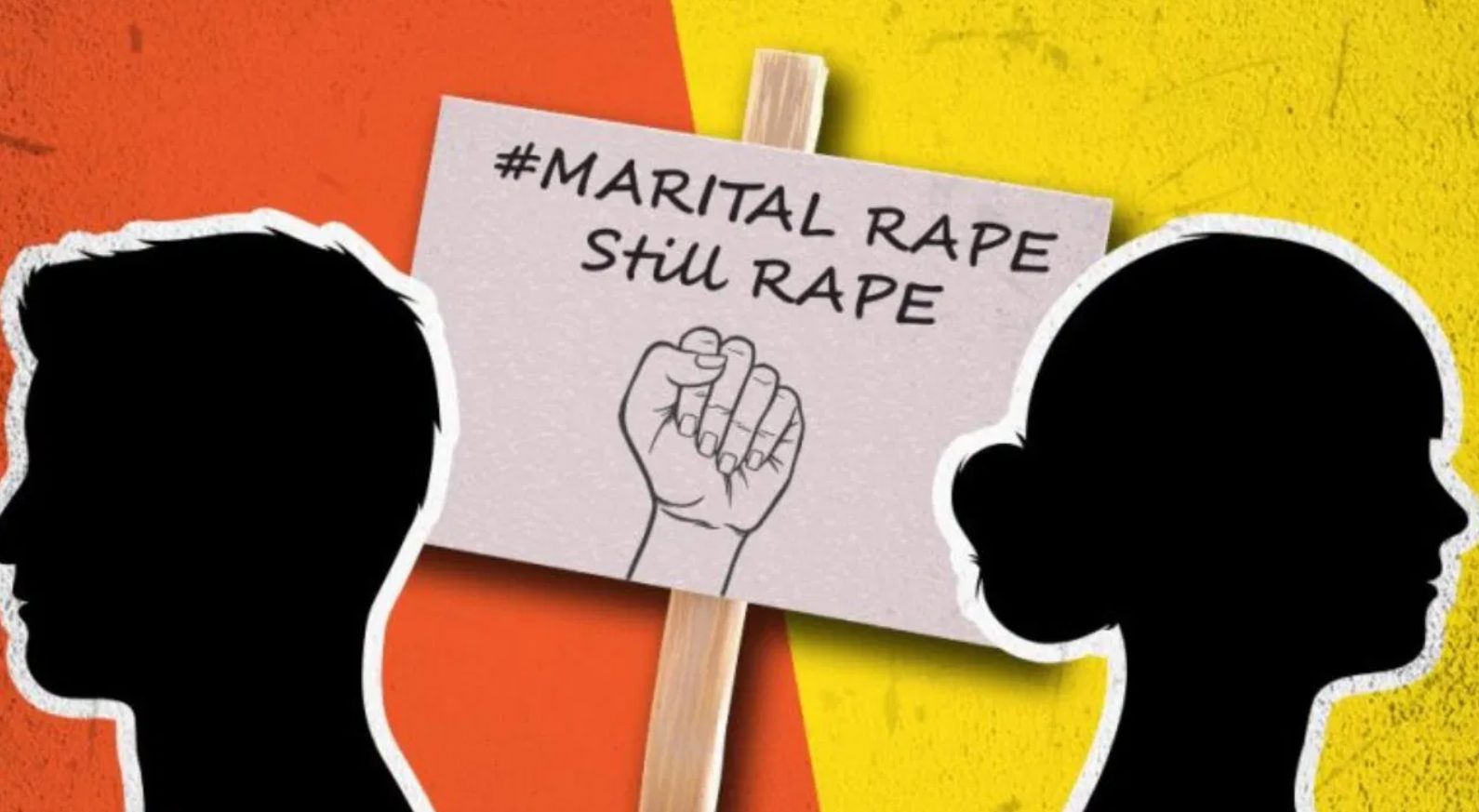MARITAL RAPE


News:
A three-judge Bench headed by Chief Justice of India (CJI) D.Y. Chandrachud has begun hearing a batch of petitions challenging the constitutional validity of Exception 2 to Section 375 of the Indian Penal Code, 1860 (IPC). The challenge also extends, by implication, to Exception 2 of Section 63 of the Bharatiya Nyaya Sanhita (BNS), 2023, which supersedes the former provision. These provisions grant legal immunity to Indian husbands by stipulating that “sexual intercourse or acts by a man with his wife, provided she is not under 18 years of age, do not constitute rape”.
Arguments in Favor of Criminalizing Marital Rape
- Equal Protection Under Law: The current Exception 2 to Section 375 IPC creates a distinction between married and unmarried women, violating Article 14 of the Constitution. All individuals, regardless of marital status, deserve equal protection against sexual violence.
- Bodily Autonomy: Recognizing marital rape acknowledges a woman’s right to make decisions about her own body. This aligns with the Supreme Court’s interpretation of privacy and bodily integrity as fundamental rights under Article 21.
- Addressing Domestic Violence: Statistics indicate a high prevalence of sexual violence within marriages. Criminalizing marital rape would provide a legal framework to address and deter domestic violence, reflecting the reality that intimate partner violence can manifest as sexual assault.
- Social Progress: The criminalisation of marital rape would reflect a progressive shift in societal attitudes towards marriage, acknowledging that consent is mandatory in all sexual encounters, including within marriage.
- Judicial Precedents: Recent court rulings have recognized that sexual assault can occur within marriage, setting a judicial precedent that supports the need for legal reform.
Arguments Against Criminalizing Marital Rape
- Preservation of Marriage: Opponents argue that criminalizing marital rape may undermine the sanctity of marriage, creating a potential for misuse of laws and false allegations, which could harm familial structures.
- Legal Ambiguities: Critics express concerns about the practical implications of defining consent in marriage. They argue that introducing legal standards for consent within marital relationships could complicate marital dynamics.
- Cultural Context: Some argue that marital relationships are based on mutual consent and expectations of sexual access, suggesting that criminalizing marital rape could disrupt traditional understandings of marriage.
- Concerns Over False Allegations: There is apprehension that criminalisation could lead to an increase in false allegations, which could have serious repercussions for men and their families, potentially leading to social stigma and legal repercussions.
- Need for Wider Consultation: The government has emphasized the need for wider consultations and a review of existing laws before making such significant legal changes, indicating that hasty decisions could have unintended consequences.
These arguments illustrate the complexity of the issue surrounding marital rape and the need for a nuanced approach in legal and societal discourse.
5
1
vote
Article Rating
Subscribe
Login
0 Comments
Oldest
Newest
Most Voted
Inline Feedbacks
View all comments